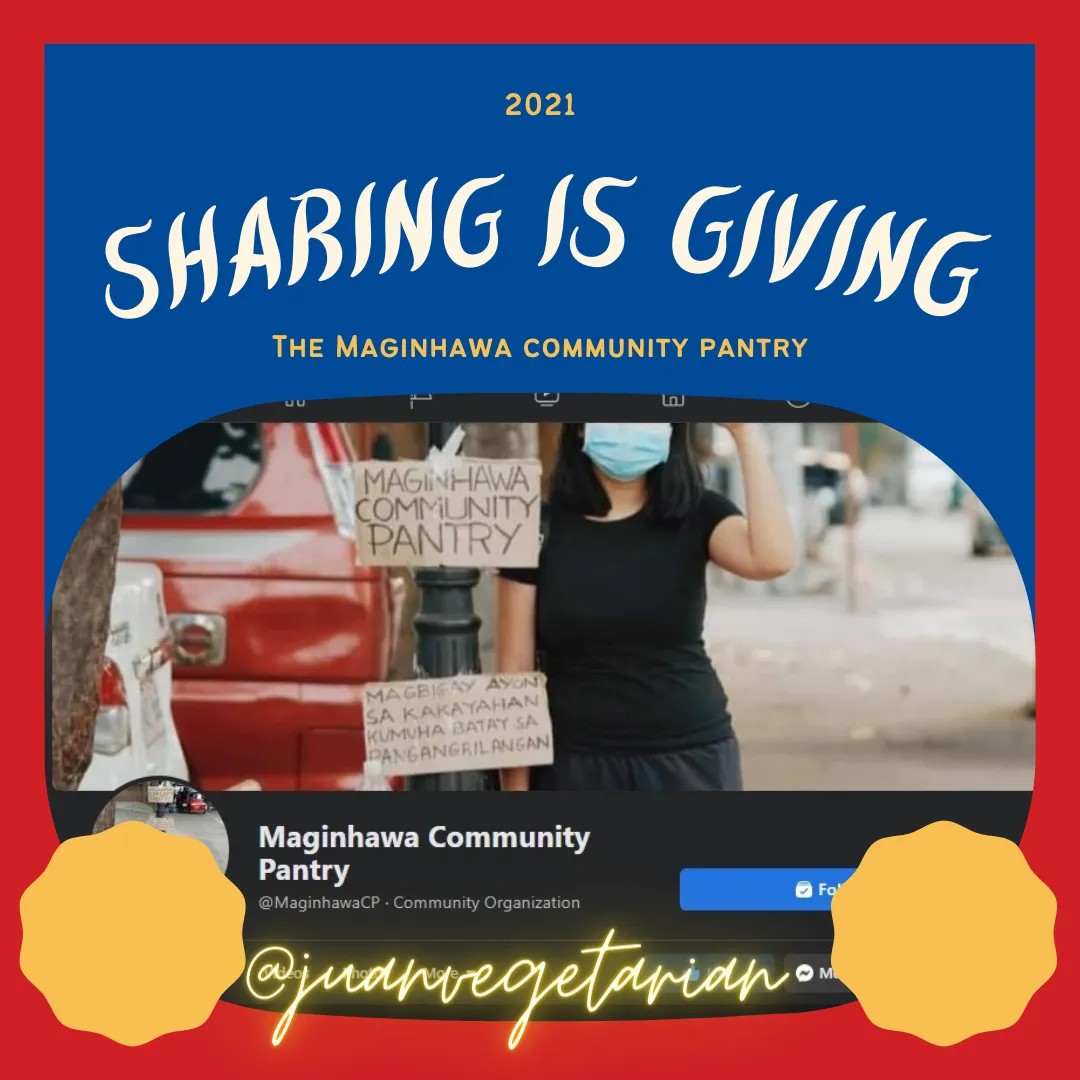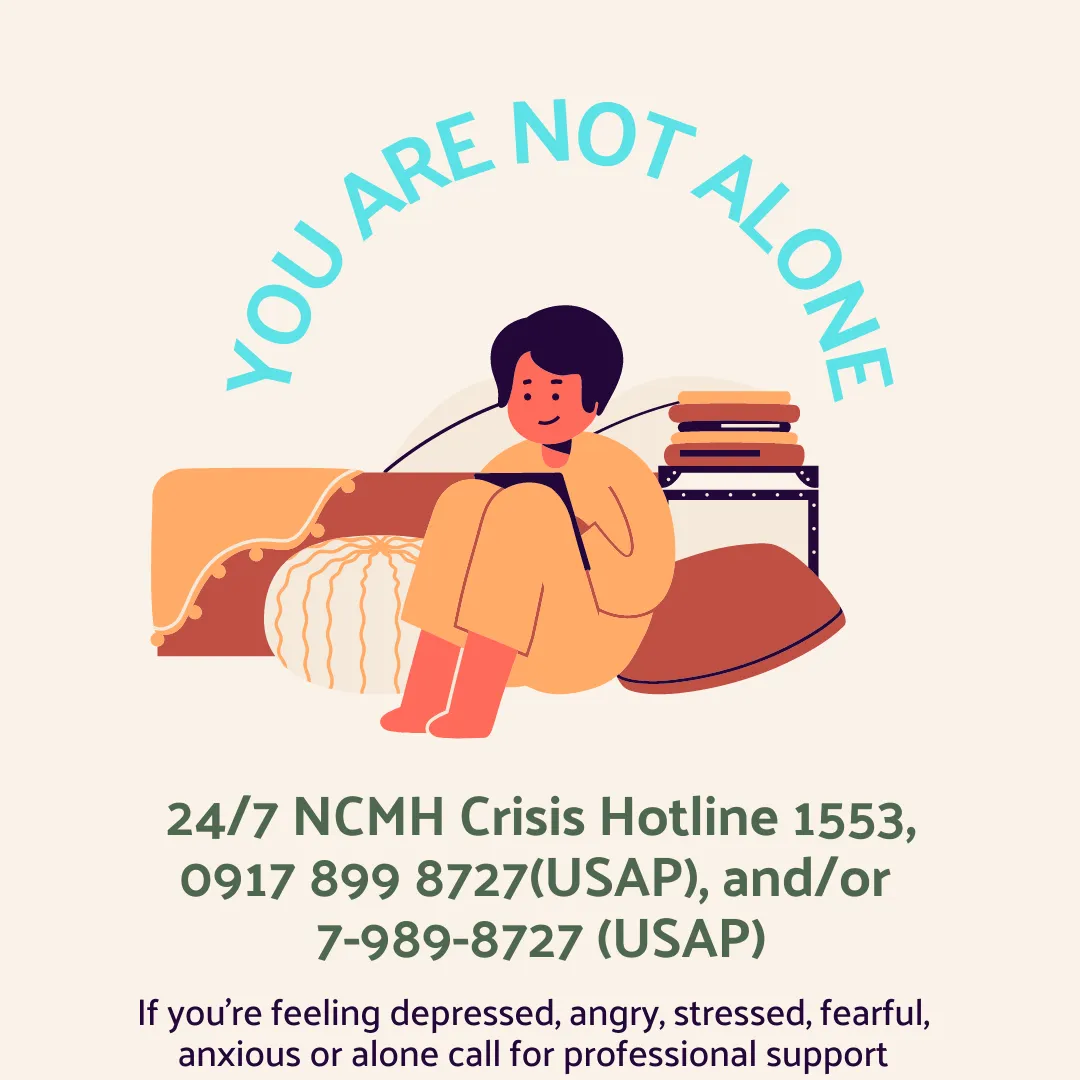A Culture of Sharing in the Pandemic Blues

*from the Maginhawa Community Pantry's FB page.
Sixteen months since the community quarantines began and we are still knee-deep in trying to prevent massive outbreaks of infection in populous urban centers. The government is doing its job; not as well as it should according to pundits and skeptics but enough to prevent super-spreader events from causing havoc on a long-neglected healthcare system.
Big companies have gone over and above selfish (profit-driven) motives to help out in different ways: from donating PPEs, medical equipment, and vaccines to giving direct assistance to communities needing immediate and dire food assistance, medical support, and financial aid to employees.
At the same time, #communitypantries began to mushroom all over the metropolis. This phenomenon of sharing what you have spread like wildfire, and the most impressive thing about it is that ordinary people contribute to the pantries. This for me is important. Even more so than the movie stars and politicians who have boatloads of cash and loose change for them is a whole week's meal to a poor family.
Click here if you'd like to read about the community pantry that sparked a movement of kindness!

Personal Reflection and Mental Health
People lost jobs as big chunks of the economy closed down, and the end is further away than most people, me included, expected this to last.
The economic suffering, concern for health and safety, boredom, and loss of lives caused depression and fatigue for many. As a highly optimistic people (#5 on the global optimism index according to the WHO), we still suffered. In fact, there was a significant increase in hotline calls on depression to the National Center for Mental Health. From 80 calls pre-pandemic to more than 400.
Click here if you'd like to read the whole piece on suicide prevention.
At any rate, the extended quarantine gave us the blessing of time away from our busy professional lives to be able to spend with our family but it also caused numerous stressors to come crashing on our shoulders at the same time.
Personally, I felt really sad seeing the reality happening around me. People I know have died during this time, both Covid-19 and non-covid related. Grieving can help nurse the weary soul and time helps heal deep wounds.
I am one of the lucky ones. I know people who have suffered multiple covid-19 deaths in their family. I can only send my heartfelt condolences to them, hoping that it helps console; and if not, being there as a friend to listen can already be a big boost to one's mental health.
Meditating on a Roller Coaster
So, in a difficult environment and challenging personal circumstances, it's easy to get caught up in an emotional roller coaster ride, which can bring about bad things to happen if not managed correctly.
Aside from getting professional help, reaching out to family and friends, and just being around positive people, it really helped that I meditate. Whether it is just from simple breathing, with prayers, or just #mindfulness, I found it helpful to clear away the cobwebs of my mind; bringing balance and a peaceful, relaxed, and more harmonious disposition in life. It helps that the happy hormone is released during meditation and calmness brought about by serotonin decreases depression to a certain extent, but that is another story to tell and beyond what I want to say in this blog post.
As the vaccine rollout continues, I believe that the situation will improve and happier times are coming. But until that time comes, we should take care of our health and well-being.
If you or anyone you know is experiencing some form of depression (in the Philippines), please call 24/7 NCMH Crisis Hotline 1553, 0917 899 8727(USAP), and/or 7-989-8727 (USAP).
You are not alone. Talk to a friend. Or call the number above.
*the images were made using templates on the canva.com website. I added a screengrab of the Maginhawa Community Pantry Facebook page on the 1st image.